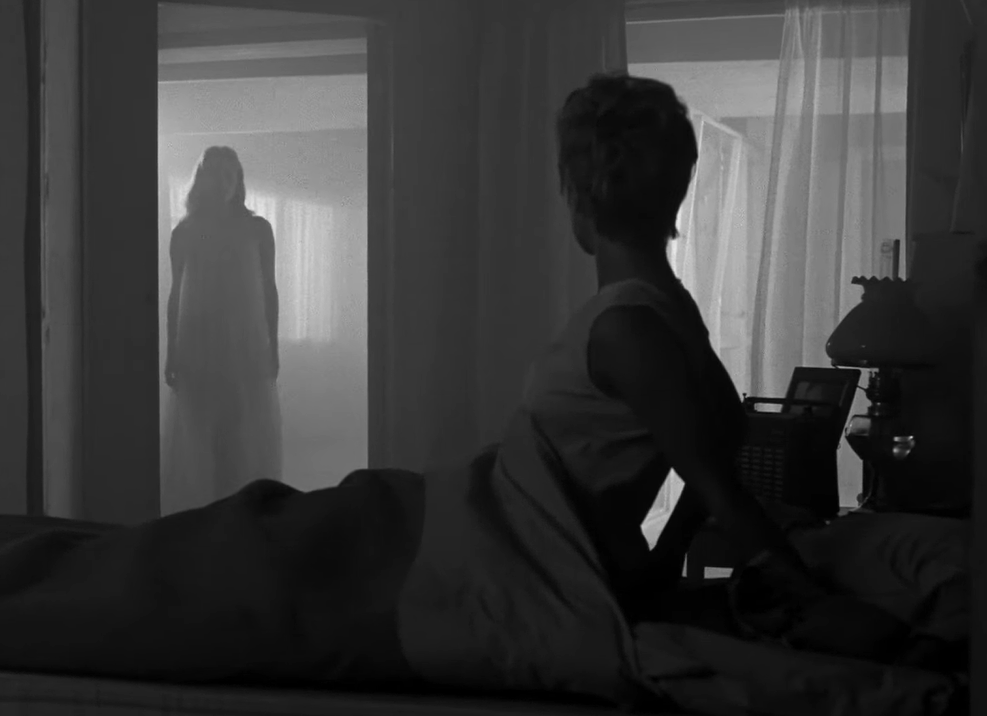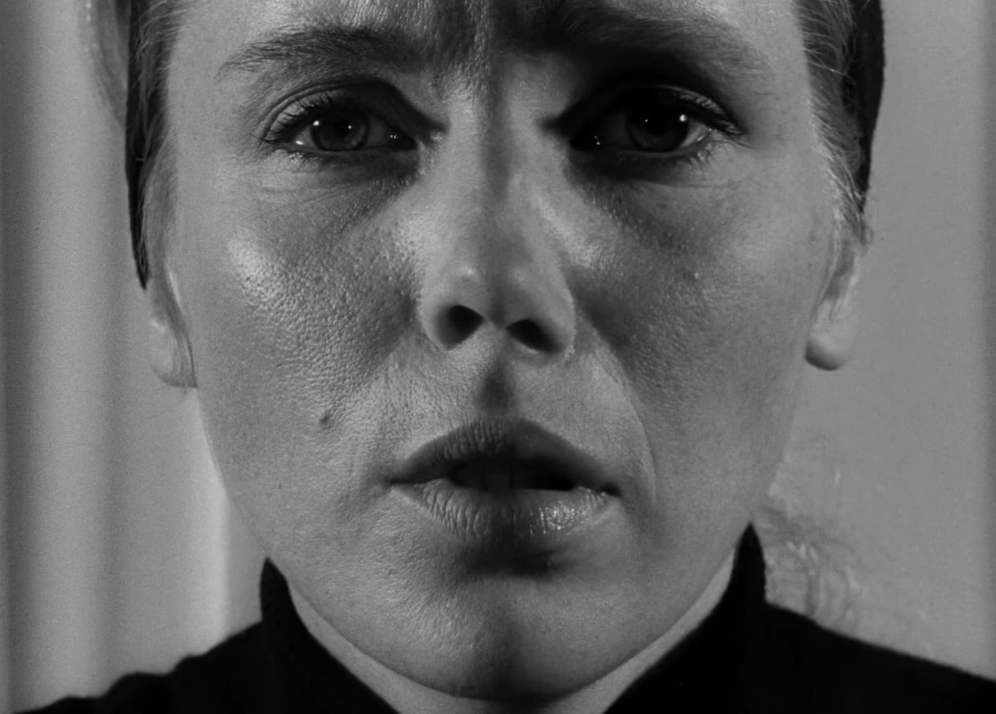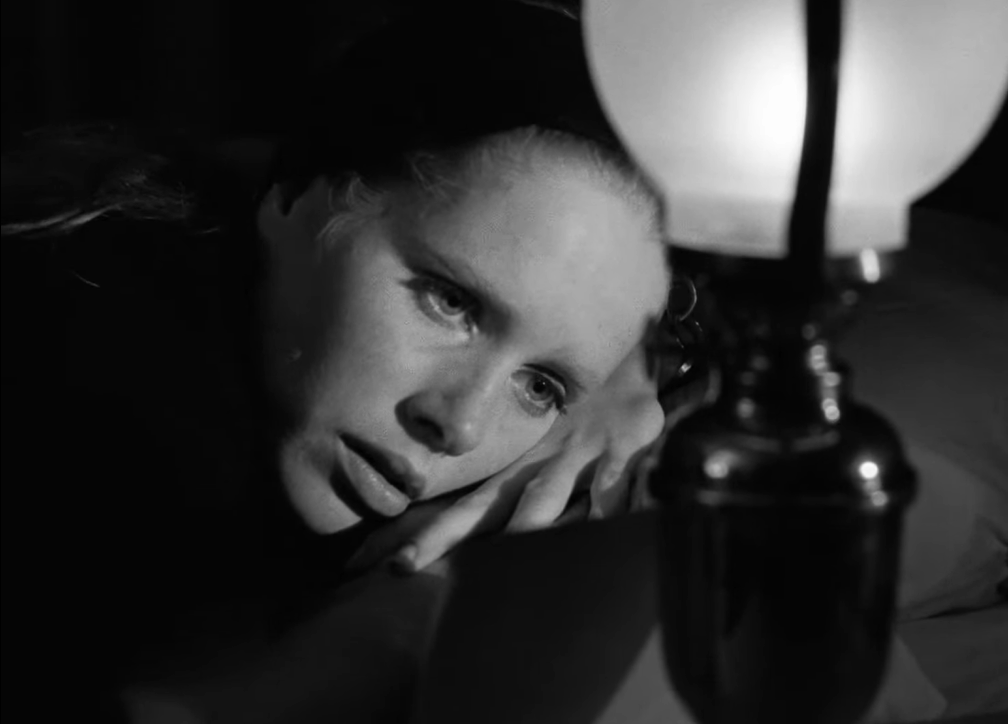Persona (1966)
“I think I could turn into you if I really tried.”
|
Synopsis: |
|
Genres, Themes, Actors, and Directors:
Response to Peary’s Review: Peary points out that, famously, “Bergman places the two actresses, who resemble each other, in close proximity and uses camera tricks (superimpositions/split screen) to make it seem as if two different women were fusing into one character.” This brings up countless questions and points of contention: “Could it be that they’re exchanging identities? Are the two women the split halves of a schizophrenic woman? If so, then is the nurse real and the actress imaginary? Or is it the actress who is real? Or, perhaps, is this woman neither an actress nor a nurse?” Peary notes that “Bergman doesn’t let us know the answers,” adding that “Figuring out — or not being able to figure out — the puzzle is much of the fun.” I wouldn’t exactly say “fun” is the most accurate word, given how dark so much of this film is; perhaps “intrigue” is a better choice. And with that said, not everyone will be taken with a story this “meta” — a film which not only critically explores complex issues of identity and psychology but plays its cinematic experimental hand so openly. So much has been written and debated about this film that first-time viewers are recommended to simply dive in and see what sense they make of it; there’s no right or wrong. Notable Performances, Qualities, and Moments: Must See? Categories
(Listed in 1001 Movies You Must See Before You Die) Links: |








One thought on “Persona (1966)”
Rewatch (6/2/22). A once-must for its unique place in cinema history. That said, and even though I’m a huge Bergman fan, I have never liked this film much.
I understand how it has been influential (see Lynch’s ‘Mulholland Drive’, Altman’s ‘3 Women’, etc.), and I can appreciate not only its visual daring but its exploration of the Ullmann character as a monster. I just don’t like the film.
Part of my aversion has to do with its seemingly unending openness to interpretation. It baffles most viewers and (as noted) people can put themselves in knots trying to get a foot in its door. In that, it’s sort of a ‘sister film’ to ‘The Silence’ – which I find less maddeningly opaque and, therefore, more inviting.
To me, it comes down, in fact, to the difference between ‘Mulholland Drive’ (which also annoys me) and ‘3 Women’ (which I find endlessly fascinating). It seems to me that a director needs to make an extra effort with this kind of film. Keeping an audience at too much of a distance is simply more frustrating than edifying.